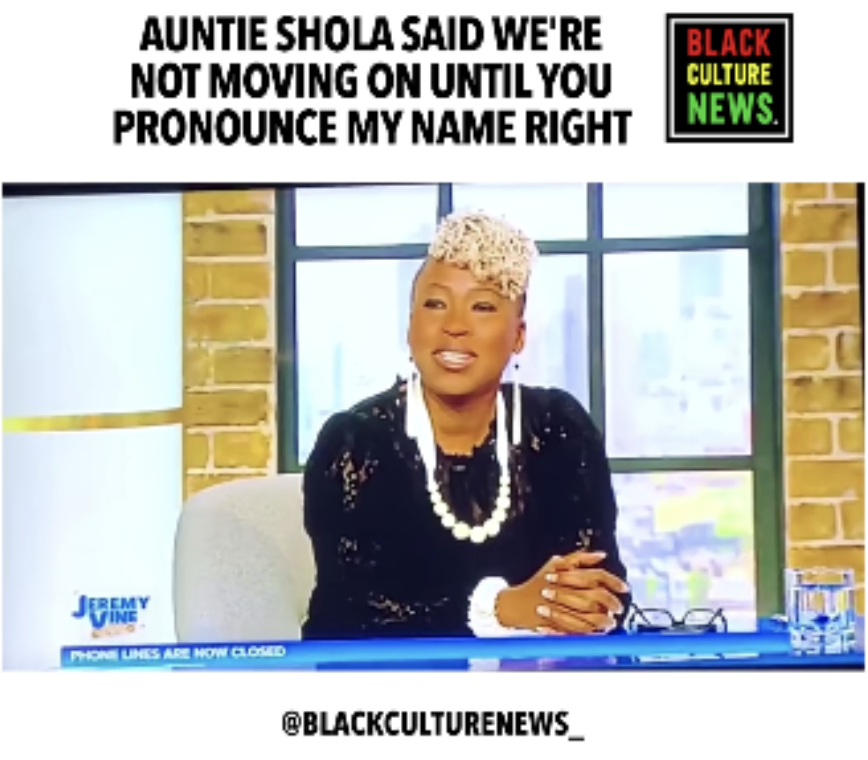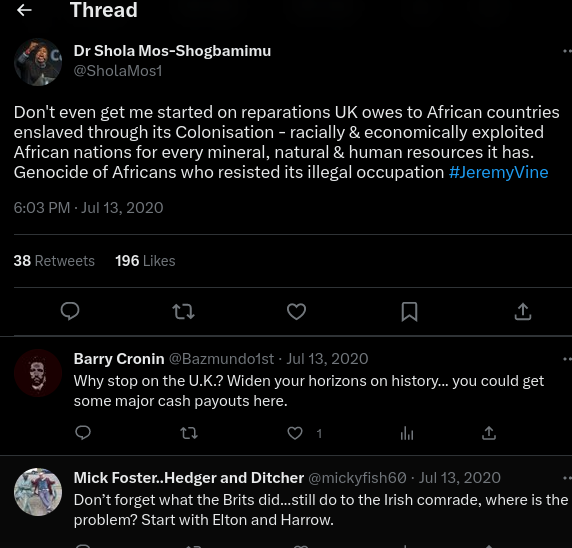Shola Mos-Shogba‘s firm demand for correct name pronunciation on TV gained global support, showcasing self-assertion powerfully. The incident unfolded on Wednesday’s episode of Jeremy Vine, where Dawn Neesom, stumbled over the pronunciation of Mos-Shogbamimu’s surname.
Adeshola Mos-Shogbamimu (formerly Babington-Ashaye) is an acclaimed British-Nigerian lawyer and academic, recognized for her activism and political commentary. With a focus on women’s rights, law, politics, diversity, inequality, and exclusion, she consistently engages in discussions. The Telegraph praised “This is Why I Resist,” Mos-Shogbamimu’s debut book, for fearlessly challenging white supremacy’s definition of black identity. It serves as a powerful call to revolutionize the narrative surrounding the everyday black experience.

Mos-Shogbamimu advocates for African culture, stressing that proper pronunciation recognizes heritage, identity, and the rich history embedded in names. By pronouncing them correctly, we show respect and appreciation for the rich tapestry of African cultures.
The incident involving Mos-Shogbamimu and Neesom underscores the need for cultural sensitivity and understanding, particularly in the realm of art and media. African creatives have long faced challenges in having their work recognized and celebrated on a global scale. By defending her name, Mos-Shogbamimu symbolically defends the broader African creative community, highlighting the importance of acknowledging their contributions and granting them the recognition they deserve.
African art restitution is a critical aspect of this movement. Many priceless African artifacts are housed in museums and collections around the world, often acquired through colonial histories and exploitative practices. The call for art restitution seeks to restore these cultural treasures to their rightful owners and communities. Through her advocacy for correct pronunciation and African cultural recognition, Mos-Shogbamimu aligns herself with the larger goal of reclaiming African heritage and promoting its artistic legacy.
The incident struck a chord with many, who expressed their support for Mos-Shogbamimu’s determination to have her name pronounced correctly. One viewer shared, “Good for her! I wish I did this at school, to be honest.” Another Twitter user related the experience to their own, sharing, “I get my surname pronounced wrong all the time. As a kid I let it go, now I correct people. It’s my name, say it properly.”

Mos-Shogbamimu’s efforts serve as an inspiration for individuals to take pride in their names and cultural identities, encouraging others to speak up and correct mispronunciations. Each correction becomes a step towards rectifying the historical marginalization and erasure of African culture.
This incident serves as a reminder of the importance of respecting and acknowledging cultural diversity, particularly through the correct pronunciation of names. It is a small but meaningful act that promotes inclusivity and fosters a sense of belonging. Each person’s name carries their identity, heritage, and cultural richness. By pronouncing names correctly, we show respect and affirm the value of each individual’s unique background.
In a world striving for equality and inclusivity, it is crucial for individuals, especially those in the public eye, to make the effort to learn and pronounce names correctly. This simple act can go a long way in creating an environment where everyone feels seen, heard, and respected. Shola Mos-Shogbamimu’s unwavering insistence


